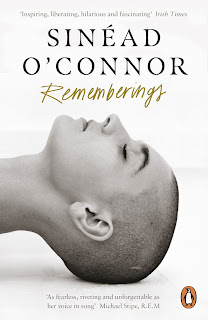Yuval Noah Harari previously described 70,000 years of human evolution in his bestseller Sapiens (which I haven't read yet), but with Homo Deus he focuses on the future. With his signature blend of science, history and philosophy, Harari explores the dreams and nightmares of the twenty-first century – from immortality to artificial life.
Homo Deus is remarkably intelligent and fluently written. The reader is presented with a thoughtful and well-substantiated analysis of the tiny homo sapiens who beliefs in God into the post-humanist who begins to believe that he is God in the 21st century. As soon as you accept that man has been striving for the improvement of his species for an entire evolution and therefore will only remain relevant in the near future by submitting to technological progress - and therefore little by little has to become a robot or a mutant himself - that is a worldview to cheer you up? As the book progressed, I admit I became a little uncomfortable as a reader.
The introduction sets out the basic thesis of the book: recently the number of people worldwide who are confronted with hunger, disease, death or epidemic has decreased drastically. Humanity is in control of these tragedies, they are no longer incomprehensible problems for which God's help must be sought. As a result, time has been released on the human agenda to focus on other things, namely the pursuit of immortality, happiness and nowadays even divinity. The focus is not on adapting the human environment, but on adapting its biochemistry. But it goes beyond that. Converting Homo sapiens into Homo deus, so that he becomes all-powerful and constantly enjoys without ever dying, is a vision of the past, of the last three hundred years, when humanism - the glorification of man - became the new world religion. In the 21st century, completely new perspectives will emerge, based on 21st century dreams.
In the final chapter of the book, Harari discusses three possible developments, the first that people will lose their economic and military usefulness, so that the economic and political system will no longer attach much value to them: many professions will be filled by artificial intelligence. A second development in which the system still finds people valuable at a collective level, but unique individuals do not: human algorithms will be taken over by external non-human algorithms, individuals will lose their freedom and authority. A third and final development is that the system still values unique individuals, but that will be an elite of upgraded superhumans, who will dominate the inferior masses: the gap that already exists in, for example, financial field, will be extended to all domains of life; liberalism will cease to exist. The 20th century was aimed at achieving the standard for everyone, the 21st century will be aimed at exceeding the standard for a select group. To some, this final chapter will be music to the ears, others will shudder. However, not thinking about this is not an option, because we are already in the middle of it and we will have to make important decisions on both an individual and collective level. Food for thought.










